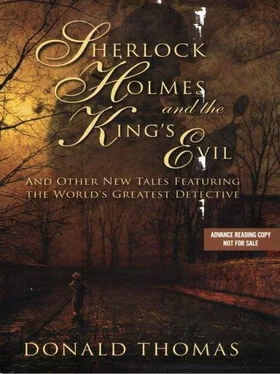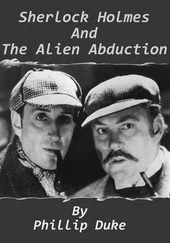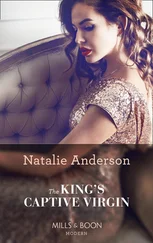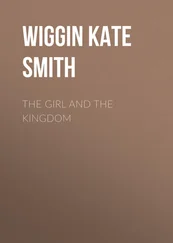“But how would they have opened the safe?”
Holmes stood up, shrugged off his overcoat and stooped to warm his hands before the fire.
“They certainly did not propose to pick the lock. How could they with the strong electric light illuminating them to the street? However, a gas pipe runs through the tenement. We found that they had tapped it, using black tape and a rubber tube sixty-three feet long, still in place. It was more than enough to reach the back of the jeweller’s safe. When they fled, they also abandoned three diamond angle-pointed drills, a large cold-steel chisel, three crowbars and a combination wrench and cutter. This collection was enough to burn or hack a hole in the rear of the safe without being seen from the street. The light illuminating the front of the safe as it faced the window would eclipse the glow of the flame as they cut through the back.”
As we sat that evening in the quiet of our Baker Street rooms, it was hard to imagine that the horrors of the previous night were anything but a bad dream. Holmes went on to describe how an urgent call that morning had brought Scotland Yard men to a house in Grove Street, a mile east of Exchange Buildings. In an upper room, a young man lay dead upon a blood-soaked mattress. He was George Gardstein, a young Russian Anarchist gunman and one of the police-murderers. He had been accidentally shot in the darkness by one of his own friends as he struggled with Constable Choat, receiving a bullet aimed at the policeman.
“Gardstein would have certainly been hanged,” said Holmes philosophically, turning from warming his hands at the fire, “had one of his companions not saved us the trouble. When his pockets were turned out there was a seven-cartridge magazine clip for a 7.65mm. pistol, a drill, a pair of gas-pliers, welder’s goggles and a key to fit the new lock which they had put on the door of the tenement to prevent unwelcome interruptions of their work.”
“Damning evidence,” I said reassuringly.
His lips contracted.
“And yet not the most interesting. The true discoveries, my dear Watson, were a violin and a small oil-painting of a Parisian street scene, showing considerable skill. It bore a signature that is not unknown.”
“Was Gardstein a painter-or a collector?”
Holmes shook his head again and sighed.
“For several years I have made it my business to be an unobtrusive listener to talk in the political clubs of Whitechapel and Stepney. Few people had met or even seen George Gardstein. Like all the Anarchist leaders, he is a ‘name’ as they call it. In this case he is Poloski Morountzeff, a revolutionary and a fugitive from the police in Warsaw. In that city he is better known as a robber and murderer.”
“And what of the painting?”
He stood up and vawned
“That, my dear Watson, is the work of a man who is far beyond Morountzeff and his kind. A man who might be a leader of nations if revolution should ever enthrone the philosophy of Anarchism or Communism. His name sends a shiver down the backs of Kings, Kaisers and Tsars. He warms the blood of political debaters and cut-throats alike. He is Peter Piatkoff and he is known in the Anarchist underworld as Peter the Painter. Oh yes, he might have made his name as an artist but he is too pure for that. In the name of the stern justice of a virtuous republic, he would cut a throat as readily as you or I would slice an apple.”
“Another Robespierre!”
He looked at me as if I had not understood.
“Robespierre wanted only France. Piatkoff will settle for nothing less than the world.”
“And he is here, in England?” I asked uneasily.
Sherlock Holmes smiled to himself.
“He is not here-but he is coming. Oh yes, he is coming. And when he comes, England will know all about it. My information is recent and particularly reliable.”
I was more than a little unnerved by this. Holmes seemed to take a strange pleasure in his promise. It was as if he anticipated single combat of some kind, alone against a terrible enemy. I went to bed and slept badly. There was something in the air-or rather in the manner-of Sherlock Holmes, which disturbed me. It was rare indeed that in any of our cases he had thrilled to the prospect of a personal duel. But now I was reminded of the terrible day when he went to meet his fate at the hands of Professor Moriarty, remarking that the world could no longer hold both of them and that if his own life must be forfeit to destroy his enemy, he would think the price well worth paying.
Two days later, I came down to breakfast to find Holmes already there and unusually cheerful. As I sat down, he put aside his knife and fork, extending his palm.
“And what, Watson, do you make of this? I fear I purloined it yesterday in Morountzeffs room. Lestrade and his merry men had overlooked it on their visit.”
I saw a round lead bullet for a muzzle-loading rifle, which I recognised from my days of military service.
“A twelve bore!” I said at once. He chuckled.
“Well done, Watson! It was not at all what Lestrade and his sergeants expected to find. Because they did not expect it, they overlooked it.”
“But what does it mean?”
“Evidently Gardstein and his friends are looking for rifles of any sort. So far they have been content with revolvers. After all, you cannot carry rifles through the streets of London without causing comment! Yet rifles mean something quite different to handguns. They can be used to defend a strong-point. They will do it with a terrible accuracy which revolvers lack. Lee Enfields are the easiest to come by and our opponents are clearly in the market for them. But if they are prepared to defend-or even to attack-strong-points in this manner, then the revolution is probably much closer than we believe.”
This did not reassure me in the least. Holmes, however, was in excellent spirits. He glanced through the newspaper and then said,
“Here is something for your scrapbook, my dear fellow!”
It was a report of the incident on Friday night, the terrible night-time drama of Exchange Buildings and Houndsditch. Holmes waggled his fork at me with a little impatience.
“The third paragraph in the editorial, old fellow. This is precisely what I had hoped to avoid.”
A curious coincidence in the terrible events of Friday night was the presence among the police officers in Houndsditch of the well-known consulting detective, Mr Sherlock Holmes. Scotland Yard will say only that Mr Holmes chanced to be in company with Inspector Lestrade at the time and was in no way connected with the case. Most of our readers will surely hope that this is not the truth. Our nation and our society are under attack by the scourings of Europe ’s political gutters. We have tolerated too much for too long on our own soil. If Mr Sherlock Holmes were to purge England and the civilised world of such unprincipled villainy, the civilised world would rally to him and he would earn the sincere gratitude of all decent men and women. If Mr Holmes has not been invited to exterminate this menace, let that invitation be issued now.
I laid the paper down. Never had I read an editorial which adopted so strident a tone.
“A little strongly put,” said Holmes brightly, “but then I have not been invited to do anything except to have dinner this evening.”
“Where?”
“I was remiss in not mentioning it last night. By-the-by, I shall be a little late home. Lestrade, sensible fellow that he is, has decided to call upon the advice of brother Mycroft in this case. Our friend is in deeper water than is usual. Even the Political Branch at Scotland Yard has not been able to help him much. Mycroft, on the other hand, lives, moves and has his being in the world of politics and conspiracy. He keeps an eye upon it, on the government’s behalf.”
Читать дальше












